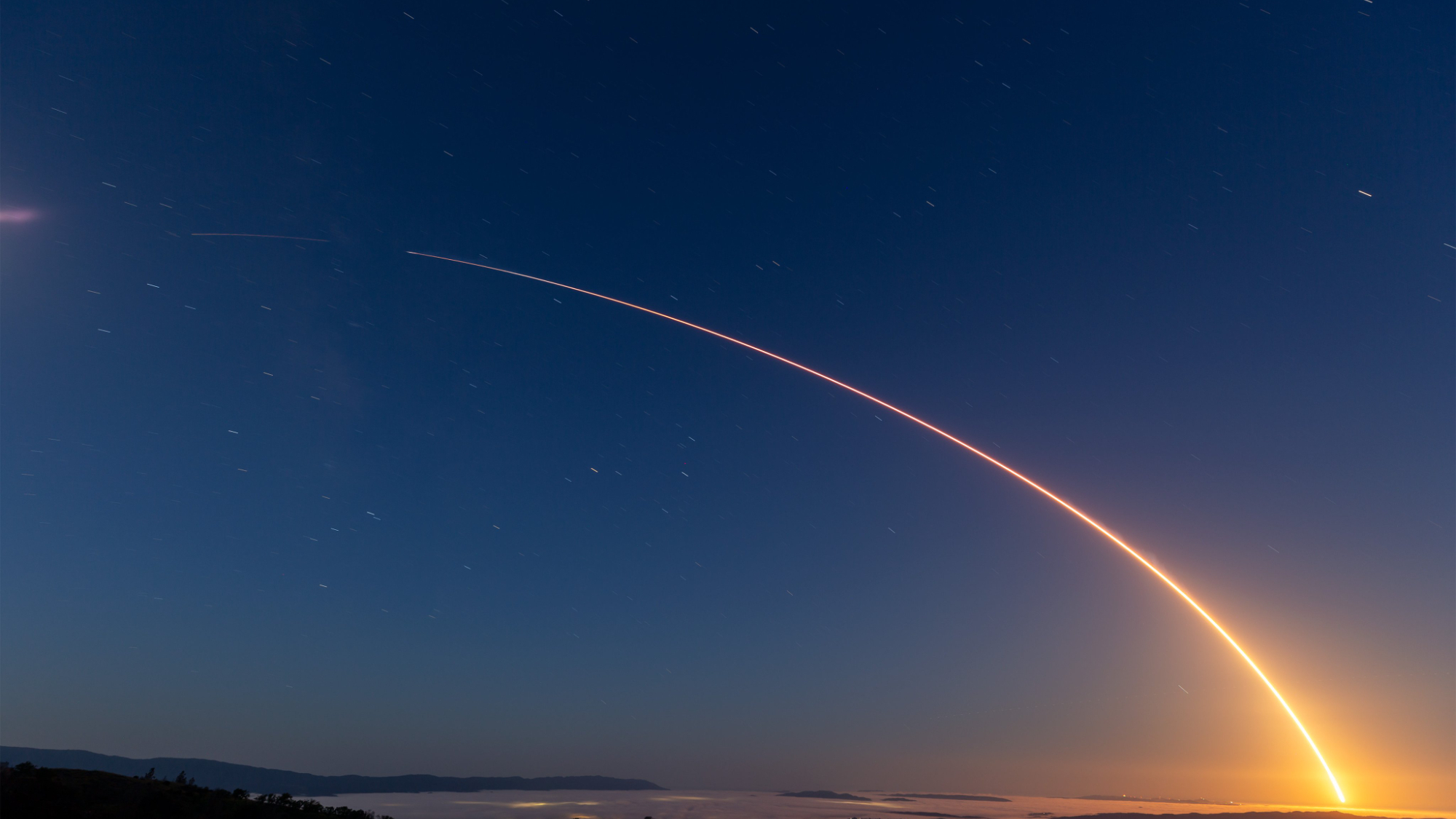South Korea sends 4th spy satellite to orbit on SpaceX rideshare launch
The satellite will boost South Korea's "surveillance and reconnaissance capabilities against North Korea by securing additional reconnaissance satellites."

South Korea sent its fourth homegrown spy satellite to orbit this week in an effort to bolster its ability to keep tabs on its neighbor and adversary North Korea.
A SpaceX Falcon 9 rocket launched South Korea's 425Sat-3 satellite on Monday (April 21) along with two other spacecraft on the Bandwagon-3 rideshare mission. 425Sat-3 is a synthetic aperture radar (SAR) satellite, a type of Earth-observation platform that can provide high-resolution imagery even at night or when cloud cover is present.
The satellite will boost South Korea's "surveillance and reconnaissance capabilities against North Korea by securing additional reconnaissance satellites," the nation's Ministry of National Defense said in a statement (in Korean; translation by Google). The ministry added that the satellite will also "strengthen kill chain abilities" (the ability to locate, identify and strike targets such as missiles) by allowing for more timely and accurate observations of North Korean military activity.
South Korea and North Korea have been launching more satellites into orbit in recent years, to keep tabs on one another following decades of tense military standoff.
North Korea claims to have placed its first satellite in orbit in November 2023 and vowed to launch more. An attempt in May 2024 ended in failure when one of its rockets exploded with a satellite onboard.
After relying on U.S. space-based surveillance capabilities for decades, South Korea launched its first spy satellite in December 2023 atop a Falcon 9, just weeks after the North's first successful launch. The nation has a contract to launch a total of five satellites with SpaceX.
Once its five-satellite constellation is complete, the South Korean military will be able to surveil its neighbor to the north every two hours, Yonhap News reports.
Get the Space.com Newsletter
Breaking space news, the latest updates on rocket launches, skywatching events and more!
South Korea's own Nuri rocket launched eight satellites to orbit in May 2023, and another flight is expected this year, but the country is already looking ahead to the upcoming KSLV-III rocket, which will be much more capable.
The nation stood up its own space agency in 2024, with the goal of landing on Mars by 2045.
Join our Space Forums to keep talking space on the latest missions, night sky and more! And if you have a news tip, correction or comment, let us know at: community@space.com.

Brett is curious about emerging aerospace technologies, alternative launch concepts, military space developments and uncrewed aircraft systems. Brett's work has appeared on Scientific American, The War Zone, Popular Science, the History Channel, Science Discovery and more. Brett has English degrees from Clemson University and the University of North Carolina at Charlotte. In his free time, Brett enjoys skywatching throughout the dark skies of the Appalachian mountains.
You must confirm your public display name before commenting
Please logout and then login again, you will then be prompted to enter your display name.









